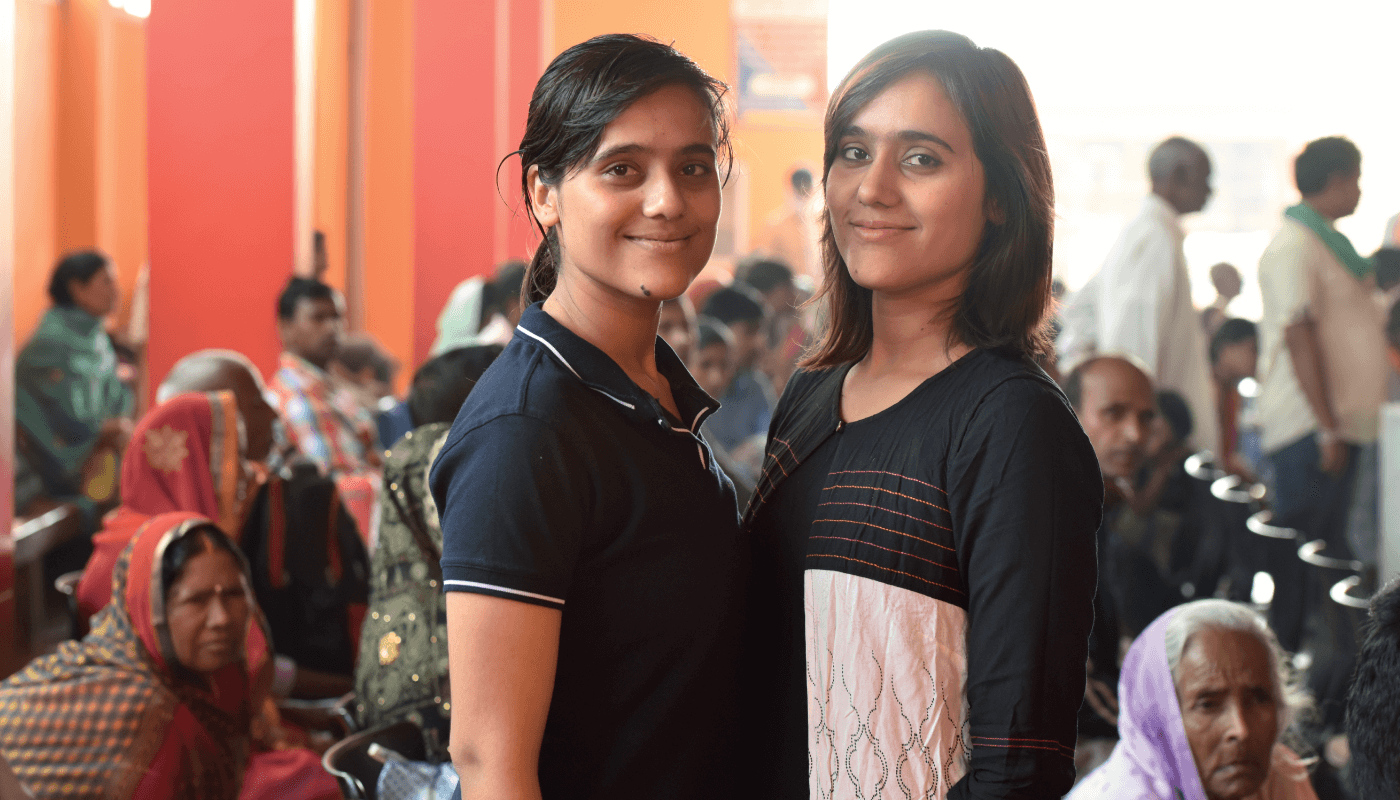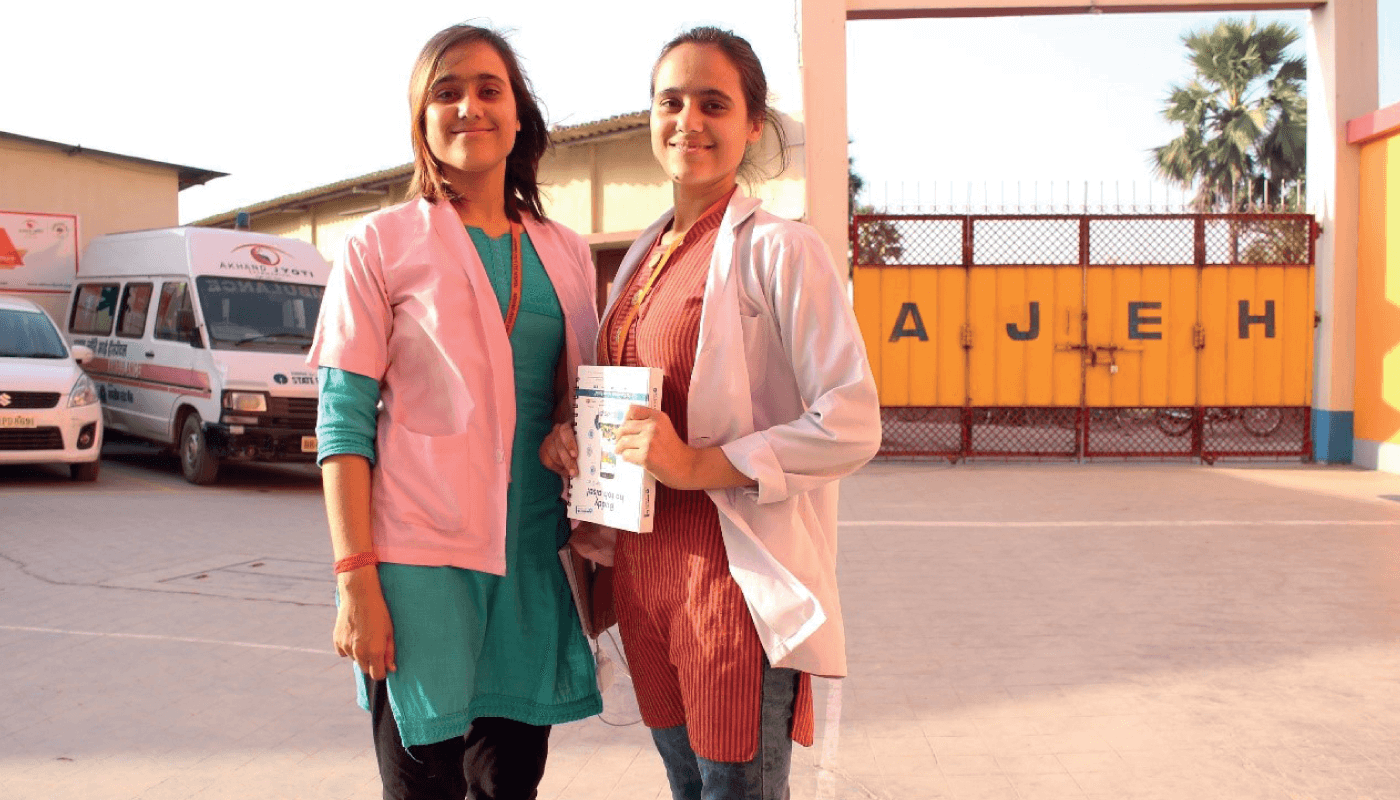
Fifteen years ago, Mrityunjay Tiwari, working in the rural state of Bihar in India, saw a pressing need for local ophthalmic care – in other words, a clinic, staffed with trained healthcare workers – as well as an urgent need to help young girls with limited opportunities to gain education. In December 2005, Tiwari founded the Akhand Jyoti Eye Hospital (www.akhandjyoti.org) in Mastichak Village in Bihar, starting with just 10 beds. The hospital grew to 350 beds and now performs around 65,000 surgeries each year, with 80 percent of those offered to patients free of charge.
The hospital eventually entered into a long-term partnership with the international eye care charity, Orbis and, in 2019, was able to start a successful pediatric eye center – Children’s Eye Centre – the only such clinic in Bihar with a comprehensive pediatric screening program. The partnership also enabled access to training in pediatric eye care.
Tiwari decided to use the hospital as a platform for bringing wider societal change, addressing the community’s attitudes towards girls’ and women’s capabilities in a state where only 52 percent of women are literate – the lowest literacy rate in India.
The hospital started a vocational training program, combining eye health education with soccer practice, that allowed girls and young women to showcase their drive, ambition, and soft skills. The vision was to empower underprivileged girls, bringing about gender equality and fighting against dowry, domestic violence, and economic inequality. The program stipulated that parents/guardians would allow girls to play soccer and agree not to marry them before they turn 21 years old. In exchange, young women would receive an eye care education, with the opportunity to become optometrists or junior doctors. As Tiwari has noted in the past, when patients receive eye care and ophthalmic referrals from qualified young women, it sends a strong message in a patriarchal society.
The sisters
Twin sisters Chhaya and Chhavi Tiwary were born in 1997 and grew up in a small village in rural Damodarpur, Bihar, without electricity or drivable roads. Every day, they walked three miles to and from school. Professional careers seemed unachievable to the two girls who were brought up by their grandmother – that is until they enrolled in the Akhand Jyoti Eye Hospital’s educational program. They graduated as optometrists alongside 11 other young women.
Chhaya Tiwary
Chhaya is a keen soccer player and an eye care professional. She was trained in low-vision rehabilitation at Dr. Shroff’s Charity Eye Hospital in Bihar. She says, “I provide rehabilitation for patients whose low vision cannot be improved, even after surgical intervention.”
Just two weeks after finishing her ophthalmic training, Chhaya approached the Akhand Jyoti Eye Hospital, single-handedly set up a clinic, and put together a team to provide low-vision rehabilitation services to adult and pediatric patients, including women and girls. During the COVID-19 pandemic, patient flow to the clinic has been reduced, but Chhaya is confident that operations will be back to full capacity when possible.

Chhavi Tiwary
Like Chhaya, twin sister Chhavi also trained in eye care and plays soccer. She attended paediatric counseling training at Dr. Shroff’s Charity Eye Hospital.
“I was the first candidate for the training in paediatric counseling at Dr. Shroff’s,” she says. “I learned that it is very important to build rapport with the patient while counseling them, explain the underlying causes [of their sight loss], and to provide necessary counseling. Initially, it was difficult for me to convince them the eye care worked [due to a lack of understanding about the effectiveness of surgery]. But now I can motivate the parents of child patients to have surgeries.”
A lack of access to eye health is an issue in many low-to-middle income countries, and Chhavi has been involved in outreach to rural communities; she comments, “I go to the field, identifying and counseling children and parents for surgical interventions.”
She recalls a home visit to see a child after an operation and remembers the child being gleeful to be able to look at the clear blue sky.
Chhavi says, “This training helped me understand the softer side of counseling, which helps me bond with people I am helping. I feel happy when I see someone, an adult or child, and they are back in the hospital for surgery after counseling.”
To watch a film detailing the sisters’ early life story, as told by them and their grandmother in 2019, go to www.akhandjyoti.org/stories-that-inspire/removing-blindness-of-the-mind.
The film shows the unimaginable barriers they had to overcome – including their father, vehemently opposed to female education, and a family tragedy – as well as their goal to eradicate avoidable blindness from Bihar.
Follow Chhavi Tiwary’s Twitter account @ChhaviTiwary to see the work she’s doing in Bihar, India.
For more information, visit www.orbis.org or @ukorbis on Twitter.
